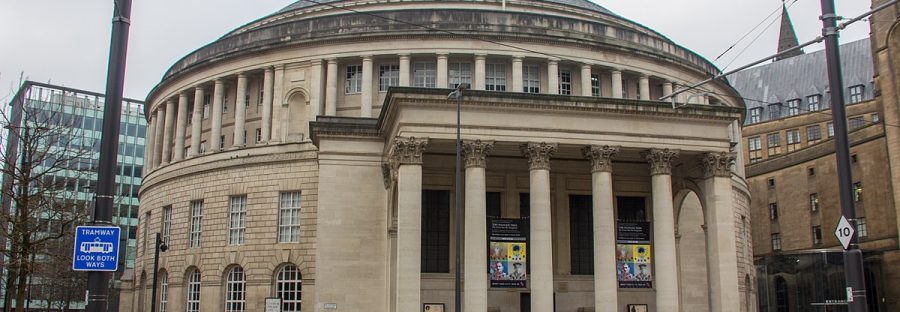‘I wanted to write characters that were good men’: Trini authors Monique Roffey and Ingrid Persaud on feminism and masculinity
- This year marks the 16-year anniversary of Manchester Literature Festival
- The discussion included topics on Trini dialect, writing politically, feminism and much more
- Both authors have retold old myths in the female gaze
The Manchester Literature Festival hosted Manchester Metropolitan University Lecturer Monique Roffey and author Ingrid Persaud at the Central Library on St. Peter’s Square.
Roffey’s novel The Mermaid of Black Conch was this year’s winner of the Costa Book Prize.
The senior lecturer in creative writing at MMU is also the author of seven books, including The White Woman on the Green Bicycle, which was shortlisted for The Women’s Prize for Fiction.
Persaud won the previous year’s award with ‘Love after Love’, her debut novel, and won the 2017 BBC National Short Story award with ‘The Sweet Sop’.
Ingrid looks like she’s hugging yogi bear. It’s just me feeling the love. Trini women writers rock. Thank you @McrLitFest @IngridPersaud #happy #trinidadandtobago #fiction #WritingCommunity pic.twitter.com/38qTLDfWyf
— Monique Roffey (@moniqueroffey) October 10, 2021
‘Love after Love’ is told from multiple perspectives but was inspired originally from a single scene about Solo, one of the main characters going to a whorehouse, and how this led to questions of masculinity – a main theme in the novel.
Roffey was inspired by an old Cuban myth, believing that it needed a female perspective.
She said, however, for her male characters David and Life: “I wanted to write characters who were good men: lovers of women.”
Persaud admits in ‘Love after Love’ that she “aimed for an openness with men”.
Both Monique Roffey and Ingrid Persaud are Trinidadian, sharing a proud sense of belonging to the island in the Q&A as they spoke of the food, language and culture.
Both award winning books are set in the Caribbean, and explore subjects such as homophobia, racism, post-colonialism and masculinity.
They also speak about looking through the female gaze, magical writing, and family.
The importance of place is a theme that is constantly brought up in the conversation, with Roffey herself even stating that her last book was “born in Trinidad and Tobago”, and that the use of Trinidadian dialect is “a language I speak in my head and when I’m home.”
Expanding on the importance of using Trinidadian dialect, Persaud said: “I made a conscious decision to write in Trinidadian English – not just the dialogue but the prose as well.
This is our English and it’s a beautiful English which everyone understands.”
Persaud is currently writing a new novel set in the Caribbean about a notorious gangster seen through the eyes of the women of his life.
The event was hosted by Kate Feld, a journalism lecturer at the University of Salford and editor of UK creative nonfiction journal and reading series ‘The Real Story’.
Her creative work has also been published in journals and anthologies such as The Stinging Fly, The Letters Page, Hotel, and Entrop.
Ingrid tells us that part of her process for writing the book was watching cooking videos on YouTube to access the culture of Trinidad. ‘There was a lot of eating.’
— Manchester Lit Fest (@McrLitFest) October 10, 2021
Now in its 16th year, Manchester Literature Festival has been building on its previous success, expanding audiences and creating new partnerships across the national and international literary world.
The festival has quadrupled in size from 2006 when it featured 30 events, attracting an audience of 3,000, to the 2019 Festival which featured 75 events and attracted an audience of over 12,000.
In 2020 MLF delivered its first digital festival featuring 17 online events broadcast on Crowdcast over a long weekend.


